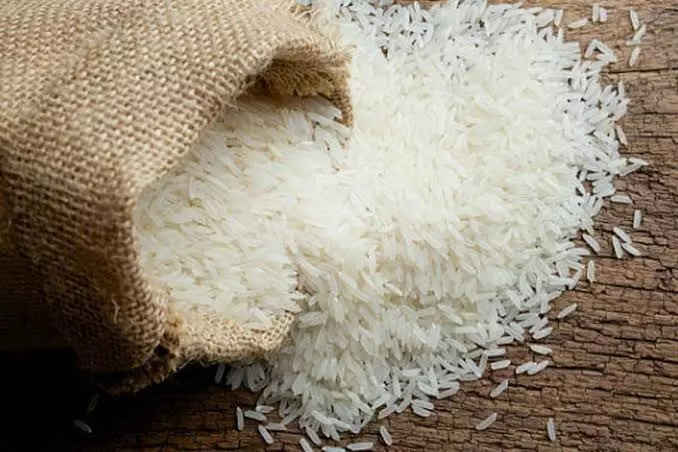Rice exporters upset over Centre's 20% export duty
The department of food and public distribution (DFPD) argued that the export price of non-basmati rice is Rs. 28-29 per kg, which is higher than the domestic price.
By Newsmeter Network
Hyderabad: Indian rice exporters are upset with the Central government's move to levy 20% duty on the export of different types of rice. India exports sona masoori, wada kolam, jeera sambha fragrance rice, ponni (black rice), red rice, and many other types of rice. India is a major player in the export of rice which accounts for 40% of the trade.
India, Thailand, Vietnam, Pakistan, and Myanmar are the major players in the world market for the export of rice.
Less rains, no exports
The government of India has levied the tax on exports due to a lack of rain leading to reduced plantation. The food ministry argued that there must be sufficient rice for the public distribution system (PDS) and Pradhan Mantri Garib Kalyan Anna Yojana (PMGKAY).
The department of food and public distribution (DFPD) argued that the export price of non-basmati rice is Rs. 28-29 per kg, which is higher than the domestic price. The Federation of Telangana Chambers of Commerce and Industry (FTCCI) said the DFPD has submitted incorrect data and it will harm the exporters and also the rice growers.
FTCCI asks Centre to re-examine export duty
In reality, there are many indigenous varieties of rice that have a huge international market. Anil Agarwal, the president of FTCCI, says, "The non-basmati rice has a huge international market selling at 3 to 4 times higher than the variety quoted. A blanket imposition of 20% duty, irrespective of their variety, quality, standard, demand and price would cripple non-basmati exports from India." He added, "With this duty, Indian rice shipments will become uncompetitive in the world market. Buyers will shift to Thailand and Vietnam. FTCCI appeals to the minister and department to protect the Indian rice exporters in the international market. This will benefit farmers, exporters, governments, and country as a whole."
· India is the world's biggest rice exporter with exports touching 21.5 million tonnes in 2021.
· The shipment of rice was more than the world's four biggest rice exporters—Thailand, Vietnam, Pakistan, and the United States.
· Non-basmati rice sells for $700 to $1,400 per metric tonne. Levying a duty on these variants will prove very expensive. It will have many adverse outcomes for team India in the long term.
FTCCI suggests alternative solution for govt schemes
To combat the envisaged shortage of rice for PDS and PMGKAY, the FTCCI suggests the Centre impose duty according to the export price of rice. A blanket duty on all non-basmati rice varieties must be avoided. Duty on long grain rice, Swarna, and other varieties can be imposed by the government of India, it said.
Why is non-basmati rice important?
Non-basmati is not one variant of rice but a very big family. India's agricultural biodiversity and heritage deserves recognition and respect, said FTCCI. The blanket duty on non-basmati rice must be reversed.